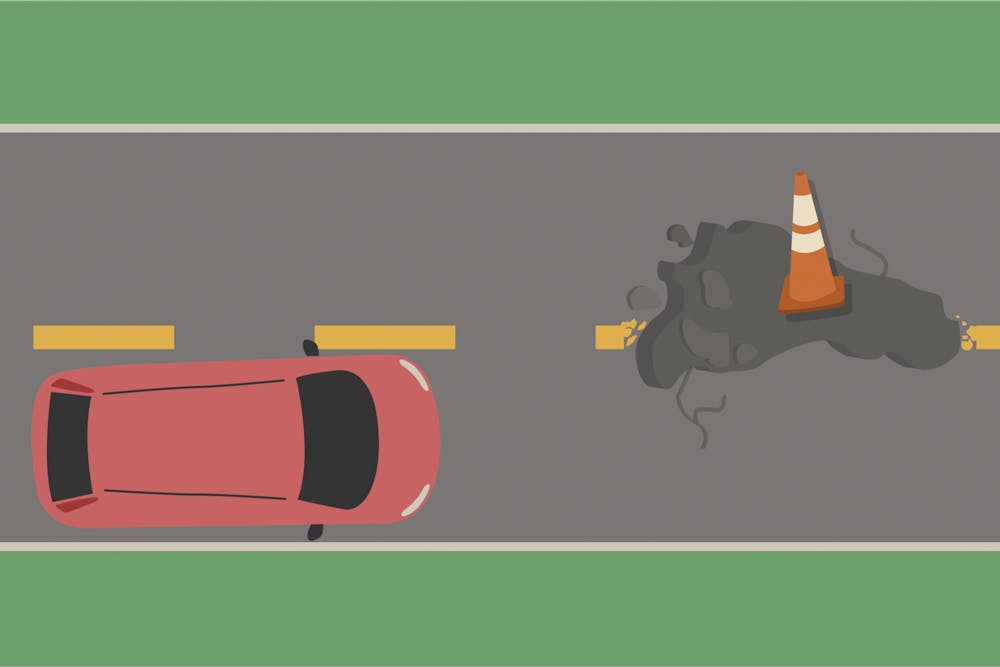The state of South Carolina’s roads is unacceptable, and they need repairs.
If you have ever driven on these roads, you’re bound to find at least one problem on your journey: potholes and decrepit road signs are a dime a dozen in South Carolina. In fact, our roads are ranked the worst in the nation, according to a study by Consumer Affairs.
Some students at USC share this opinion on the state of our roads, especially concerning the potholes.
Second-year nursing student Katie Weaver said she runs over potholes all the time. In addition, second-year psychology student Courtney Smith said the bottom of her car gets scraped up because of potholes.
While Weaver and Smith got off with just some cosmetic damage and annoyance, third-year advertising student Noah Ovitt-Reed was less lucky.
"About a month or two ago, I was actually driving down ... I believe it was I-26, and I hit some sort of divot in the road, and my tire actually popped in the middle of the highway,” Ovitt-Reed said.
The condition of the roads is one of the main reasons second-year psychology student Gabrielle Bouchard said she doesn’t like to drive.
The students all agreed it makes sense that South Carolina's roads are the worst in the country.
Some students also noticed the condition of our roads in comparison to those of our neighbors.
“If you’ve ever crossed the border to Georgia, specifically, it gets better instantaneously,” third-year political science student Jonah Palmer said.
Weaver echoed the statement and said drivers know as soon as they enter South Carolina because of the quality of roads.
Even with those stories and opinions, questions remain: How did our roads get this way, and what can be done to fix them?
Nathan Huynh, a civil and environmental engineering professor at USC, said it is due to a combination of two factors.
First, the South Carolina Department of Transportation (SCDOT) maintains the fourth largest state-maintained roadway in the country at approximately 41,000 miles, Huynh said.
“The other factor is that our funding level is at the bottom of the states. So, it’s a combination of both a lack of funding and the amount of responsibility that they have," Huynh said.
Looking towards a brighter future, Huynh said in 2017, South Carolina legislature did pass a bill to increase the gas tax that will fund road construction, and that several paving projects are already underway throughout the state.
However, Huynh also gave a warning.
“In the future, as more and more electric vehicles make their way into the mainstream, it’s going to create a deficit in the infrastructure fund for the DOT. Also, during the pandemic, if you recall, a lot of people were not driving at that time, and that has hurt the DOT in the recent months," Huynh said. "They’re going to have to change their mechanism of getting funds from the travelers."
According to Huynh, one mechanism suggested by other states is that travelers could potentially be charged for every mile traveled, following the logic that people pay for public utilities such as water, but not for roads.
“How that can be achieved has to be determined by the legislature and the DOT. So, it’s a complicated problem,” Huynh said.
The state of our roads is a known problem. Although the legislature has tried to remedy it, more must be done, especially since our current primary funding strategy, gas taxes, might become obsolete.

